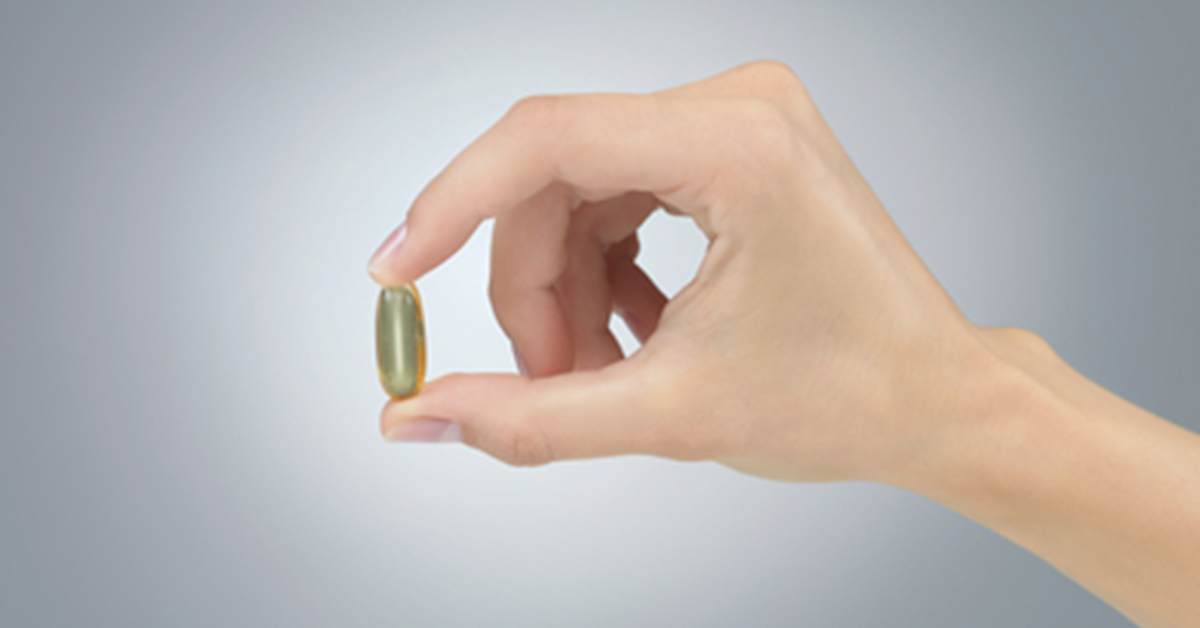
Known as "The Sunshine Vitamin," Vitamin D helps your body absorb and use calcium, which is essential for strong bones and teeth, among other benefits.
What is Vitamin D?
Vitamins are potent compounds that your body needs in very minute quantities for normal growth and overall good health. Vitamins help your body utilize all the other nutrients that you take in.
Vitamin D has multiple functions in the body. It helps your body absorb calcium from the intestines and maintains adequate calcium concentrations in the blood. Sufficient calcium concentrations are essential for the normal mineralization of bone required for bone growth, bone remodeling, maintaining strong bones and tooth formation. Vitamin D also plays a role in nerve, muscle and immune functions, regulating cell growth and reducing inflammation.
Vitamin D is a fat-soluble vitamin. This means that it binds to fats, or lipids, that have been ingested and is absorbed with them. Therefore, anything that alters the intestines' absorption of fat, like certain drugs and diseases, will alter the absorption of vitamin D.
What happens if you have too little vitamin D in your body?
Individuals who have too little vitamin D, called hypovitaminosis D, may undergo faulty mineralization of bones and teeth. They may develop bones that are thin, brittle or soft and conditions like osteoporosis, osteomalacia, or rickets.
Hypovitaminosis D can cause delayed or failed healing whenever bone formation is required, like fracture healing. Thus, individuals recovering from orthopedic surgery may experience delayed or failed healing for spinal fusion, total hip or knee replacement, and ankle fusion. Poor bone quality may also be a risk factor for periodontal diseases.
Beyond its effects on the skeleton, hypovitaminosis D may adversely affect other organ systems and result in muscle weakness and pain, progression of osteoarthritis, and impaired immune function.
Can you have too much vitamin D in your body?
Yes. Vitamin D toxicity is possible but very rare. Vitamin D toxicity generally results only from extreme overuse of supplements, usually at or over 40,000 IU. Too much vitamin D can lead to high levels of calcium in the blood. Symptoms of vitamin D toxicity include calcium deposits in soft tissues, kidney stones, nausea, vomiting, constipation, weakness, and confusion or disorientation.
How do our bodies get vitamin D?
There are three ways your body can get vitamin D:
- Food: Vitamin D is naturally present in very few foods; other foods have vitamin D added to them (called fortified foods). Vitamin D-rich foods include fortified milk, egg yolks, liver and saltwater fish.
- Exposure to sunlight: Your body produces vitamin D naturally after exposure to sunlight.
- Supplements: Check with your health care provider to see how much you should take.
Can you determine how much vitamin D is in your body?
Yes. To determine how much vitamin D is in your body a blood test is required. Specifically, a laboratory will measure the serum concentration of 25-hydroxyvitamin D, a form of vitamin D. The results will be reported in one of two forms: nanomoles per liter (nmol/L) or nanograms per milliliter (ng/mL). This test tells how much vitamin D is in your blood, but it does not indicate the amount of vitamin D stored in body tissues.
Recommended vitamin D daily intake
Daily intake of vitamin D and the amount of vitamin D in your blood are not identical. They are separate items. Ingesting more vitamin D should increase the amount of vitamin D in the blood; however, the amount of this increase can vary between individuals. The daily amount of vitamin D required by an individual will depend on a variety of factors, including how much vitamin D is currently in their blood. Therefore, daily intake needs may vary greatly from one person to another. Ask your doctor about the ideal vitamin D intake for you.

